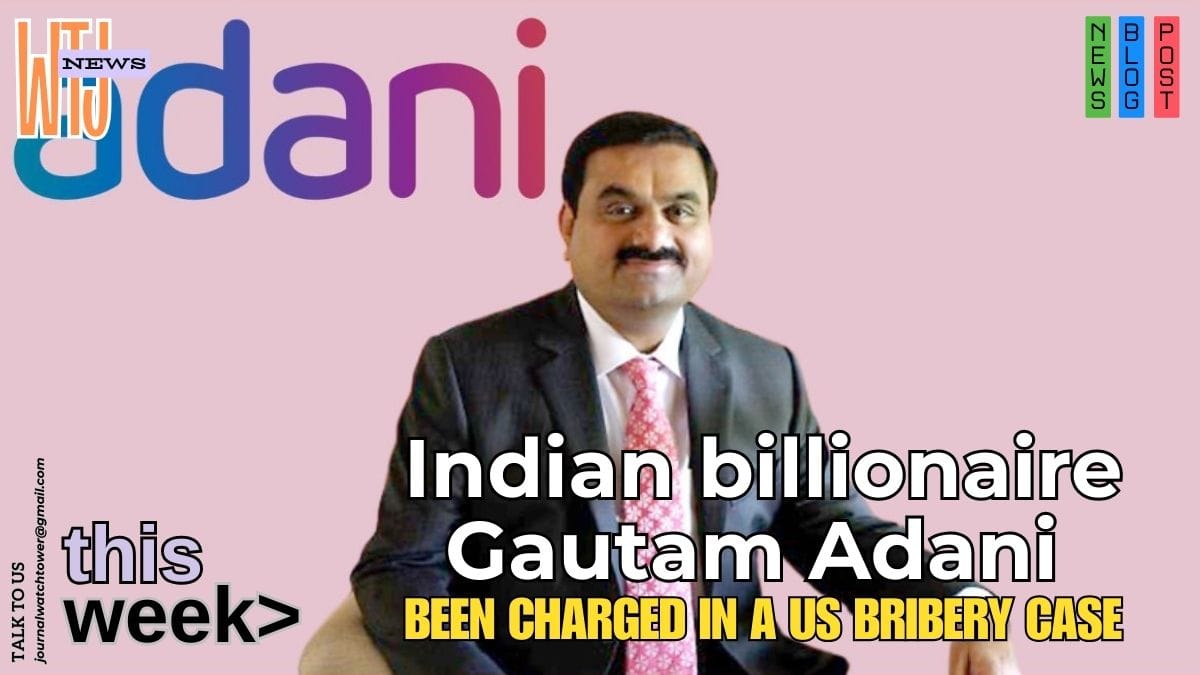The sprawling business empire of Gautam Adani, one of India’s most prominent billionaires, finds itself embroiled in yet another controversy, this time on the global stage. U.S. authorities have unveiled allegations that Adani and other key individuals orchestrated a bribery scheme amounting to over $250 million to secure lucrative solar energy contracts. This development has not only triggered a sharp market reaction but has also raised questions about corporate governance and ethics within India’s business landscape.
The Nature of Allegations
The charges, unveiled by the U.S. Attorney’s Office for the Eastern District of New York, accuse Gautam Adani, his nephew Sagar Adani, and Vneet Jaain, along with five others, of participating in a sophisticated conspiracy. Allegedly, the group bribed Indian government officials to secure contracts for solar energy projects valued at over $2 billion in profits. Furthermore, they are accused of misleading international investors, including those in the United States, about their adherence to anti-bribery laws to attract capital for these ventures.
The accusations extend beyond bribery to include securities and wire fraud. This multi-faceted indictment suggests a systemic effort to manipulate global financial markets while compromising transparency and ethical standards. Former executives from Azure Power Global and Canadian institutional investors have also been implicated, signifying the international scope of the alleged misconduct.
Market Repercussions
The revelations have caused an immediate financial impact, with Adani Group’s bonds taking a significant hit. Dollar-denominated notes issued by Adani Green Energy dropped by as much as 15%, while Adani Electricity Mumbai notes fell 8.2%. Amidst the fallout, Adani Enterprises canceled a $600-million bond-selling program, a move likely aimed at damage control amidst eroding investor confidence.
The timing of these allegations further compounds the challenges facing the Adani Group, as the conglomerate continues to grapple with reputational damage from the explosive 2023 Hindenburg Research report. That report accused the Adani Group of financial misconduct and stock manipulation, leading to a massive erosion of investor wealth and raising questions about regulatory oversight in India.
Adani Group’s Response
In response, the Adani Group has categorically denied the allegations, describing them as baseless. The company emphasized its commitment to the highest standards of governance and transparency, reassuring stakeholders of its compliance with all relevant laws. It has also pointed out that, as per the U.S. Department of Justice, the charges remain allegations until proven in a court of law. The group has vowed to explore all legal options to defend its position.
Historical Context
This development follows the 2023 Hindenburg Research report, which accused the Adani Group of stock manipulation and financial irregularities, causing massive investor losses. The current allegations compound the conglomerate’s ongoing struggle to restore credibility.
A Broader Context of Corporate Governance
These developments underscore the growing scrutiny of corporate practices in India, especially in an era of globalization where businesses operate across multiple jurisdictions. The Adani Group, long viewed as a symbol of India’s economic ambitions, now finds its image tarnished, with potential repercussions for the broader Indian corporate ecosystem.
For foreign investors, the allegations reinforce concerns about the transparency and accountability of Indian corporations. While India has made strides in establishing itself as a global investment destination, incidents like this can erode trust and deter investments, particularly in sectors reliant on international financing.
Broader Implications
- Repercussions for Indian Corporate Image:
- The allegations could impact foreign investor sentiment towards Indian corporations.
- Questions may arise about governance and transparency standards within India’s corporate sector.
- Global Financial Scrutiny:
- U.S. and international regulators are signaling a firm stance against corruption in global markets.
- Companies operating internationally may face heightened scrutiny over compliance with anti-corruption laws.
- Political Fallout:
- Opposition leaders in India, such as Rahul Gandhi, have seized the moment to criticize the government and demand stricter action against alleged corporate misconduct.
Political Ramifications
The political fallout from these allegations has been swift and fierce. Opposition leaders, notably Rahul Gandhi, have called for Gautam Adani’s arrest and questioned the government’s close ties with the businessman. Such calls have reignited debates about crony capitalism in India, with critics alleging that certain industrialists enjoy undue privileges at the expense of fair competition and public interest.
Looking Ahead
The allegations against Gautam Adani mark a critical moment in India’s corporate history. They highlight the importance of robust regulatory frameworks and the need for greater vigilance in ensuring corporate accountability. For the Adani Group, the road to rehabilitation will be long and fraught with challenges, as it seeks to regain the trust of investors, stakeholders, and the public.
On a broader scale, this case serves as a cautionary tale for corporations worldwide about the perils of compromising ethical standards in the pursuit of profit. It also underscores the role of international regulatory bodies in maintaining the integrity of global financial markets. As this case unfolds, its implications are likely to resonate far beyond the confines of the courtroom, shaping narratives about corporate governance, ethical capitalism, and the future of business in emerging markets.




